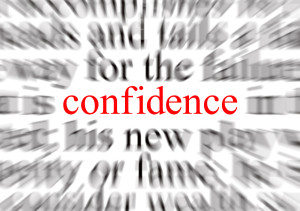 Cara Sheldrake has just completed a Ph.D. in Classics and Cornish Studies with the University of Exeter. Her thesis was about the use of classical texts in Cornish historiography 1600-1900 and covered the role of the ancient material in local identity narratives. She is currently writing about time-travel to Roman Britain, especially in Children’s Literature, looking for a publisher for her thesis and job-hunting. You can find her on Twitter or email her.
Cara Sheldrake has just completed a Ph.D. in Classics and Cornish Studies with the University of Exeter. Her thesis was about the use of classical texts in Cornish historiography 1600-1900 and covered the role of the ancient material in local identity narratives. She is currently writing about time-travel to Roman Britain, especially in Children’s Literature, looking for a publisher for her thesis and job-hunting. You can find her on Twitter or email her.
 I didn’t get the funding for which I applied to do my MA in Classics, and I didn’t get top marks in my dissertation when I eventually finished it. My confidence duly shaken, I didn’t even apply for a scholarship for my doctorate. Nonetheless, I was still determined to reach that milestone and to continue my research. Since I was lucky enough to have had some money saved and a partner in full-time employment, it wasn’t a difficult choice. I had a bar job as an undergraduate, worked full-time at the same place through my masters and it made sense to stick with the same employer through my Ph.D.
I didn’t get the funding for which I applied to do my MA in Classics, and I didn’t get top marks in my dissertation when I eventually finished it. My confidence duly shaken, I didn’t even apply for a scholarship for my doctorate. Nonetheless, I was still determined to reach that milestone and to continue my research. Since I was lucky enough to have had some money saved and a partner in full-time employment, it wasn’t a difficult choice. I had a bar job as an undergraduate, worked full-time at the same place through my masters and it made sense to stick with the same employer through my Ph.D.
When I started my course I was determined to study full-time and dropped down to working a 20-25 hour week. Fortunately, my boss was not only happy to accommodate this but also respected my absolute commitment to “research  methods” training. Furthermore, my desire to travel to the main libraries was easily fitted into the rota. I am very grateful for the support I received at work and fear that many other people in more regimented jobs may not have had the same degree of flexibility. However, a combination of difficult personal circumstances and the pressures of actually doing a Ph.D. contributed to the recurrence of long-term mental health problems. Eventually, I was able to admit that the only way forward was to take a break and then finish as a part-time student.
methods” training. Furthermore, my desire to travel to the main libraries was easily fitted into the rota. I am very grateful for the support I received at work and fear that many other people in more regimented jobs may not have had the same degree of flexibility. However, a combination of difficult personal circumstances and the pressures of actually doing a Ph.D. contributed to the recurrence of long-term mental health problems. Eventually, I was able to admit that the only way forward was to take a break and then finish as a part-time student.
My experience of being both self-funded and part-time has been mixed. On the one hand, I was not subject to the same punishing review regimes as those who were regularly justifying the continuation of their funding. On the other I had to rely on my own motivation to make the money and make it worthwhile: making sure you haven’t wasted your cash can focus your willpower but is very pressurising.
 There were also administrative hiccups; like the fact that I was rarely sent expenses forms and it was not made easy for me to send in claims. One year I nearly missed my annual review because of a system error. The university guidelines were a bit hazy on how many supervisory meetings I should be having a year, but they were also very forgiving of the idea of my making staggered fee payments as I gathered the cash. Similarly, as a part-time student I was not required to be on campus and visible, but because of this I had no personal office space and very little opportunity to make use of departmental resources (such as specialist software). Overall, they were sympathetic to the notion of part-time study, but not entirely set up to advise individuals on managing their time and energy. I did attend some part-time specific training sessions which I would recommend to any student in a similar situation. Yet, for the most part I found it difficult to organise a coherent programme of training or career advice.
There were also administrative hiccups; like the fact that I was rarely sent expenses forms and it was not made easy for me to send in claims. One year I nearly missed my annual review because of a system error. The university guidelines were a bit hazy on how many supervisory meetings I should be having a year, but they were also very forgiving of the idea of my making staggered fee payments as I gathered the cash. Similarly, as a part-time student I was not required to be on campus and visible, but because of this I had no personal office space and very little opportunity to make use of departmental resources (such as specialist software). Overall, they were sympathetic to the notion of part-time study, but not entirely set up to advise individuals on managing their time and energy. I did attend some part-time specific training sessions which I would recommend to any student in a similar situation. Yet, for the most part I found it difficult to organise a coherent programme of training or career advice.
 It might be possible to attribute the sense of isolation I had during my studies to the fact I lived more than 2 hours from campus (and because I was self-funded I could rarely afford to make the journey), but I suspect that it is a common problem for part-timers everywhere. I regularly received invites to seminars and lectures that I couldn’t make because of other (work) commitments and financial issues, and as a result I didn’t meet many other Ph.D. students or even members of the department. I often felt that I was missing out on the sort of research involvement and feedback that is vital to improving one’s own work, and there was no one to whom I could complain about the daily grind.
It might be possible to attribute the sense of isolation I had during my studies to the fact I lived more than 2 hours from campus (and because I was self-funded I could rarely afford to make the journey), but I suspect that it is a common problem for part-timers everywhere. I regularly received invites to seminars and lectures that I couldn’t make because of other (work) commitments and financial issues, and as a result I didn’t meet many other Ph.D. students or even members of the department. I often felt that I was missing out on the sort of research involvement and feedback that is vital to improving one’s own work, and there was no one to whom I could complain about the daily grind.
I did join an online forum for part-time researchers in the region (organised by Vitae and still existent), but to my disappointment found it to be largely inactive. It is somewhat disheartening to get emails reminding you every day about events that you could or  perhaps should be getting involved with, but can’t. It was especially hard for me to acknowledge that the teaching and conference organising experience that was part and parcel of other postgraduates’ lives was out of reach for me and that that would eventually count against me if I wanted an academic career. This definitely contributed to my personal sense of being an academic fraud who was not actually good enough to get a doctorate and stopped me from feeling confident enough to work towards publication.
perhaps should be getting involved with, but can’t. It was especially hard for me to acknowledge that the teaching and conference organising experience that was part and parcel of other postgraduates’ lives was out of reach for me and that that would eventually count against me if I wanted an academic career. This definitely contributed to my personal sense of being an academic fraud who was not actually good enough to get a doctorate and stopped me from feeling confident enough to work towards publication.
Luckily, I had strong support from my supervisor, who encouraged me to believe in my research and plenty of people who were interested in what I was doing. I know that doing my Ph.D. self-funded and part-time was the only option for me and, despite worries about how “useful” it might be to my career, it was important to me and I don’t regret it.
Hello, Cara!It’s about 18 months since i wrote to you.You kindly sent me a Bibliography, adding considerably to what I knew about Tarshish/Cassiterides/Prof George Rawlinson.I have bought & read the same & am part-way through reviewing them, for an on-line journal.Is your PhD Thesis accessible?Thank you so much for your time & trouble.Re-mental health etc: after 40+yrs as an academic in schools/colleges,I was[I thought]robust.Major trauma+12months wirh no sleep led to heart-attack + Cancer…… Just recovering!Thanks again, Andrew
Hi Andrew,
Glad to hear you are recovering.
My thesis is available online through the Exeter open research scheme https://ore.exeter.ac.uk/repository/handle/10871/8426
I would be really interested in reading your thoughts on Rawlinson so do please keep me up-to-date.
All the best
Cara
Congratulations on completing your thesis! I recognize your name from Vitae and Academia and it gives me hope, given that I am also self funded, part time, distance and an Exeter student! I know exactly what you mean about the isolation and the inability, due to other commitments, to actually meet other academics (I have also written about this on here), and I too feel like an academic fraud – who do I think I am playing with the ‘real’ academics? It is so nice to read that I am not the only one – and even nicer to see that it is possible to succeed! Thank you and congratulations!